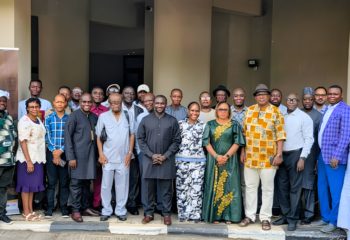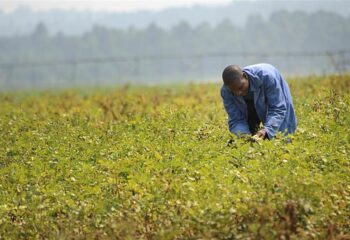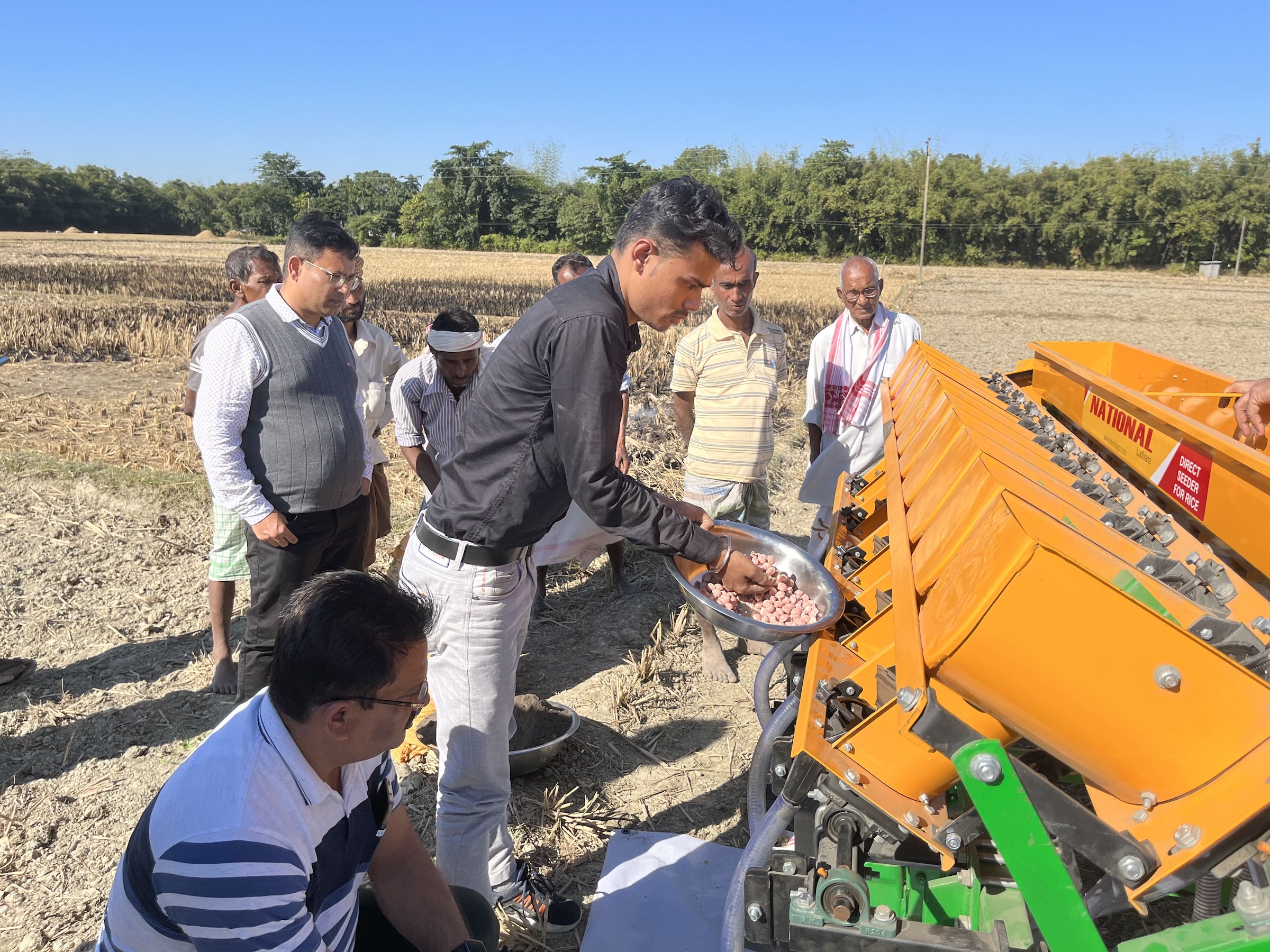
Fertilizers contribute to a 40-60% increase in crop productivity to feed the growing population. Foodgrain production in India has more than tripled, with only a meager increase in cropping area and use of irrigation facilities. This is because of a significant increase in fertilizer consumption by 14-fold. The annual fertilizer subsidy of U.S. $28 billion has allowed the country to become the second largest consumer, producer, and importer of fertilizers.
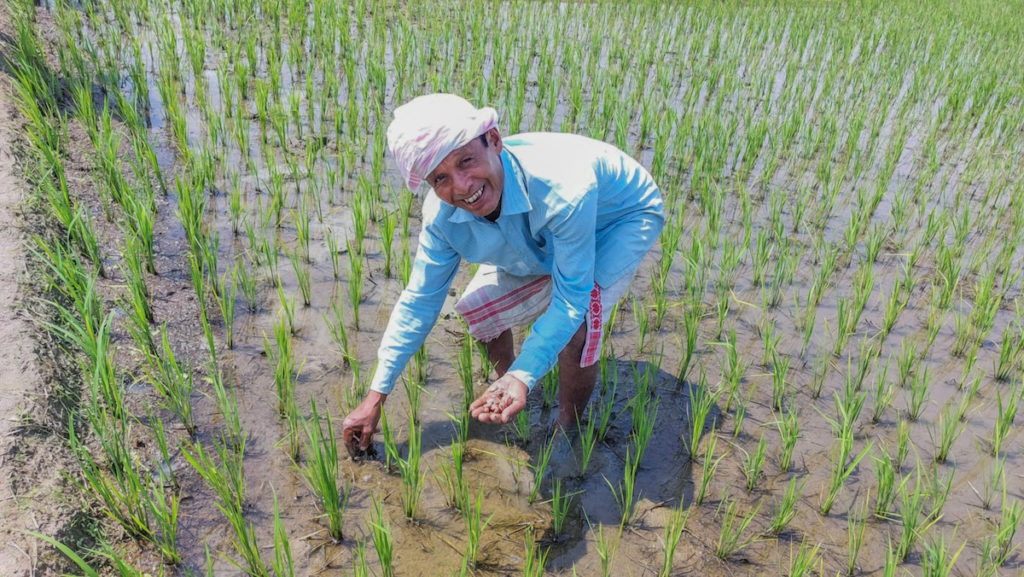
However, the nutrient use efficiency (NUE) in India is less than 30%, causing a 70% loss in the fertilizer applied, which has an adverse impact on soil and environmental health, as well as livestock and human health. This causes environmental pollution and climate change and leads to high economic losses of around U.S. $15 billion annually. Broadcasting of fertilizers and the use of traditional water-soluble fertilizer sources are the key issues leading to a low NUE in the country.
As part of the Assessment of State Fertilizer Scenario and Promoting Efficient Nutrient Management (ASPEN) project, the International Fertilizer Development Center (IFDC), in collaboration with the Department of Agriculture, Government of Assam, Punjab Agricultural University, Feed the Future, the U.S. Agency for International Development (USAID), and National Agro Industries, have developed a seed-and-fertilizer drill.
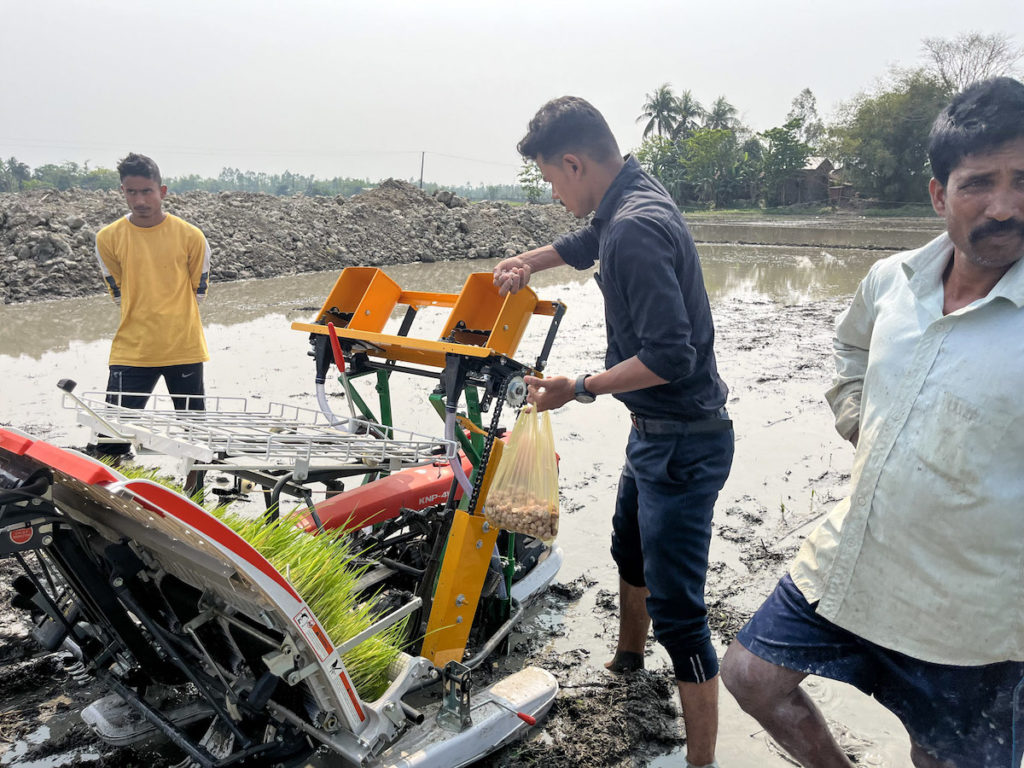
This innovative machine transplants paddy rice and places the recommended fertilizer briquettes (NPKZnS) at the desired depth of 5-6 centimeters. The mechanization of fertilizer deep placement (FDP) is helping improve rice productivity by 30% and reduce urea use by 20%. The innovation lowers nitrogen losses due to runoff and volatilization and reduces nitrous oxide (greenhouse gas) emissions from the soil.
Large-scale adoption of this technology will help improve energy savings, buildup of soil organic matter, and carbon dioxide capture. The technology will also reduce the labor required by women, who do most of the arduous work of transplanting paddy. IFDC also envisions linking farmers who embrace this technology to carbon credits as an additional source of income. This will serve to transform Indian agriculture from a subsidy- to an incentive-based production system.
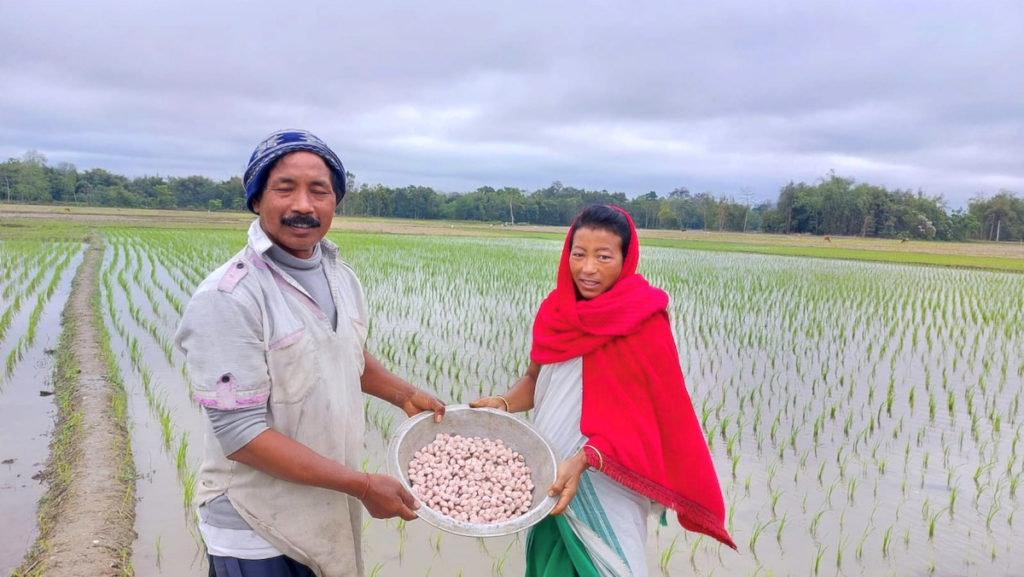
ASPEN is a two-year IFDC-led initiative of the Assam Rural Infrastructure and Agricultural Services (ARIAS) Society, under the auspices of the Assam Agribusiness and Rural Transformation Project for India (APART), funded by the World Bank.

